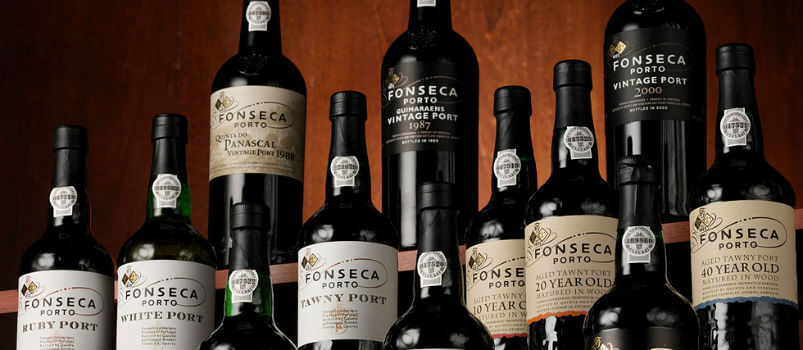Text João Barbosa | Translation Jani Dunne
Wines can be classified as good or bad, those with stories and those without, those which have history and those which don’t. Only good wines reach this last level. Longevity allows for historical stories. Frequency establishes a good reputation and high status. Fonseca ports are made of “kindness”, stories, history, reliability and reputation.
Centenaries are a good reason for a toast. The Fonseca company, now part of The Fladgate Partnership group, is celebrating its bicentenary. Coincidentally, another significantly more important date is also celebrated this year.
In the 16th century, a man named Michel de Nostredame became famous for his prophecies, apparently accurate. He divined – believe it or not – the emergence of three antichrists: the first Napoleon Bonaparte and the second Adolf Hitler, whose name is similar to “Hister”, the prophet’s original vision.

Fonseca’s Port Wines in the-yeatman-hotel.com
I took the liberty of rewriting this “truth” on antichrists: Josef Stalin, Fuminaro Konoe, Hideki Tojo, Mao Tse Tung, Pol Pot and many dictators of lower impact. Napoleon could only be deemed a demon in his era. He held the motto of the French Revolution and spread it – at random – throughout Europe.
Before the “real” Napoleonic war, the War of The Oranges took place, when Spain took over Olivença, in 1801. In 1806, Portugal refused the order to take part in the naval blockade of the British Isles. Hence, it was invaded by Spain and France, and King Dom João VI, his family, the court and the staff escaped to Brazil.
There were three French invasions: one in 1807, then 1809 and 1810. In what we call The Peninsular War, those invasions were lead by Jean-Andoche Junot, Nicolas Jean de Dieu Soult and André Massena. In 1811, Anglo-Lusan (Portuguese) troops kicked out the French and Spanish invaders.
Napoleon Bonaparte was defeated by the British troops, commanded by Arthur Wellesley and allies, on the 18th June 1815 in the Battle of Waterloo. Once the conflict was over, the soldiers returned: Lusitanian Loyal Legion patriots and the traitors of the Lusitanian Legion, who fought for France. Many of the traitors were spared and some even had streets named after them. I don’t understand my country.
The Chinese write recession with two combined characters: danger and opportunity. Business is naturally risky, and in war times, even riskier. The Peninsular War ended on the 10th April 1814, with the Battle of Toulouse. The news didn’t travel fast; it was virtually impossible to keep up-to-date with the army’s moves. Even though a year had gone, starting a business in that context was very risky, especially since the client was in Great Britain and there were still fiend ships at sea.
In 1815, supported by the Monteiro family, João dos Santos Fonseca bought 32 casks of Port Wine. Later, in 1860, the Guimarães family arrived – the anglicised name is Guimaraens – and, later on, the Yeatmans, in the second half of the 20th century.
It still is a family business. Two hundred years later, what can one say? Everything is written in the first two paragraphs.
Contacts
Quinta do Panascal
5120-496 Valença do Douro
Tel: (+351) 254 732 321
E-mail:marketing@fonseca.pt
Website: www.fonseca.pt




Peggy Wilson
I have a 1963 Fonseco Port. If cellared properly, is there a time in which it should be enjoyed?